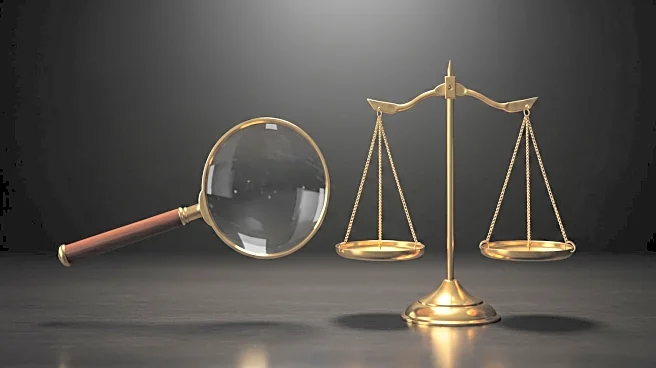What's Happening?
Former U.S. Attorney General William Barr is set to appear before Congress to answer questions regarding his investigation into the death of Jeffrey Epstein. Barr personally intervened in the investigation following Epstein's death in a Manhattan detention cell in August 2019. His involvement included a review of jail surveillance footage, which he claimed showed no one entering Epstein's cell block. However, recent analysis by CBS News has identified inconsistencies in Barr's description of the footage. The House Committee on Oversight and Government Reform, led by Chairman James Comer, has issued subpoenas to Barr and other officials as part of a renewed inquiry into Epstein's death.
Why It's Important?
The investigation into Epstein's death has significant implications for public trust in the justice system, particularly concerning high-profile cases. Barr's involvement and the subsequent scrutiny highlight potential lapses in federal detention protocols and oversight. The inquiry may affect political figures connected to Epstein, including President Trump and former President Clinton, who have distanced themselves from Epstein. The case continues to fuel conspiracy theories and public skepticism, impacting political discourse and potentially influencing policy reforms related to detention center management and transparency.
What's Next?
Barr's deposition is the first in a series of inquiries by Congress into the circumstances surrounding Epstein's death. The committee's investigation may lead to further subpoenas and testimonies from other key figures involved in the case. The outcome could prompt legislative changes aimed at improving oversight and accountability within federal detention facilities. Additionally, the inquiry may influence ongoing political narratives and campaign strategies, particularly those related to transparency and justice reform.
Beyond the Headlines
The investigation into Epstein's death raises broader ethical questions about the treatment of inmates and the responsibilities of federal officials in ensuring justice and transparency. It also underscores the challenges in balancing public interest with privacy and security concerns in high-profile cases. The case may lead to long-term shifts in how such investigations are conducted and reported, potentially affecting media practices and public expectations of governmental accountability.









